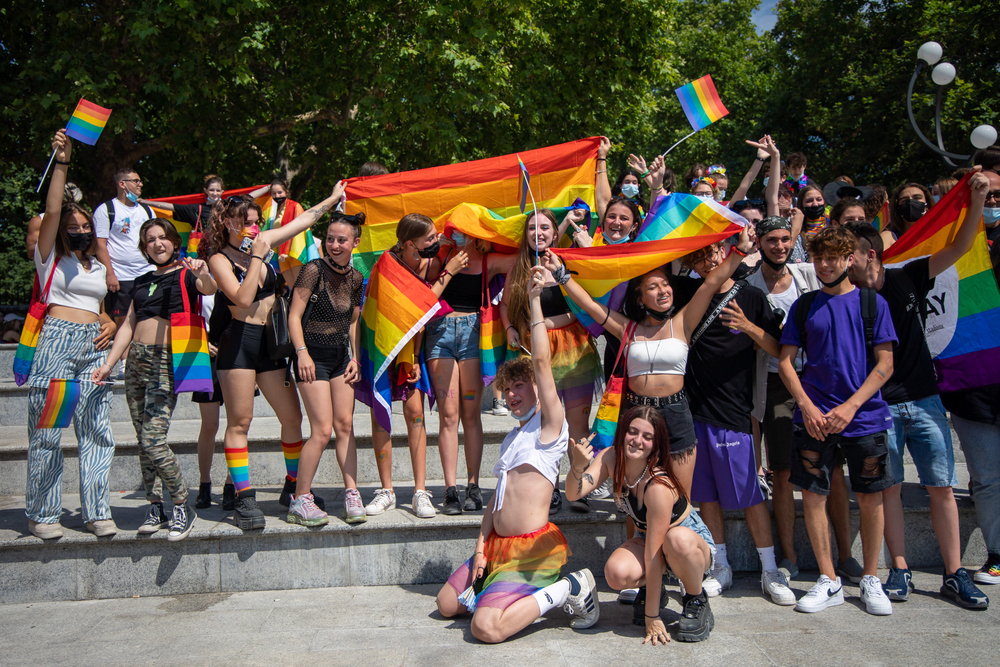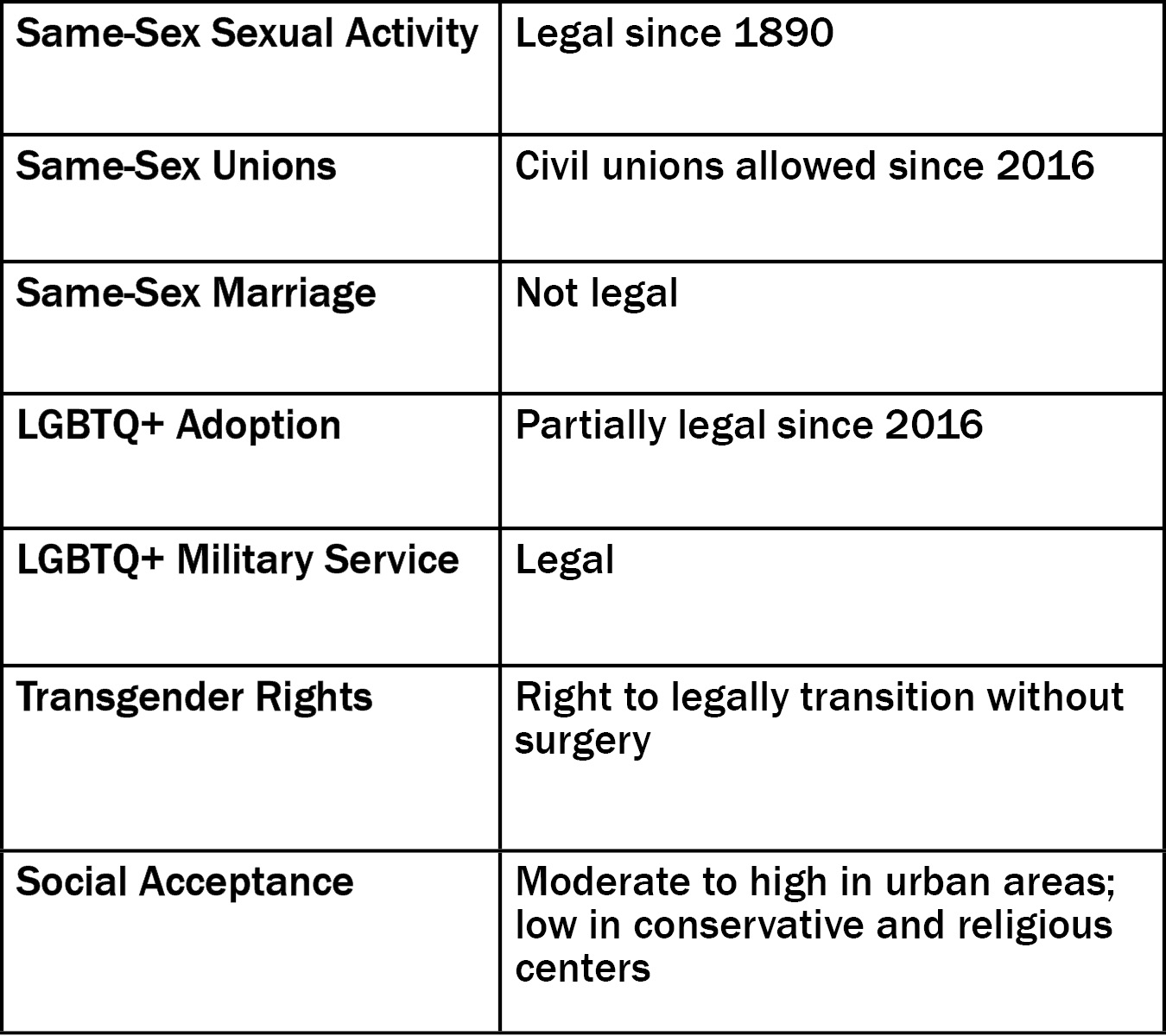LGBTQ: Legal and Cultural Status
Over the past few years, the LGBTQ+ community has been the beneficiary of a marked shift in global public opinion, with movement towards greater cultural acceptance and enhanced legal status. Nevertheless, views are not uniform across all countries.
In the most progressive countries, members of the LGBTQ+ community enjoy cultural acceptance, social freedoms, and full legal status. In the most restrictive countries, identifying as LGBTQ+ or engaging in same-sex acts is punishable by jail or death.
When preparing to travel abroad as a tourist or for business, members of the LGBTQ+ community should thoroughly research country-specific legal, cultural, and security issues prior to departure.
Understanding where a destination country falls on the spectrum of acceptance allows LGBTQ+ individuals to decide whether to travel to a given destination and to understand how to conduct themselves safely when they arrive.
Legal Facts
Same-Sex Sexual Activity
On January 1, 1890, Codice Zanardelli (the Zanardelli Code) became the official Penal Code of Italy. As this code became effective, it fully legalized sexual activity between all couples, including same-sex couples.
Same-Sex Unions
Same-sex couples were granted legally recognized unions in 2016. On February 2, 2016, a same-sex civil union bill began to be debated within the Italian parliament. The bill eventually passed and became effective on June 5, 2016.
Same-Sex Marriage
Same-sex marriage is not legal in Italy. In 2018, a ruling issued by the Supreme Court of Cassation in Italy, the court of last resort, established the precedent that same-sex marriages entered abroad are not legally binding in Italy.
Adoption
Legge 184/1983 (Italian Law 184/1983) explicitly limits adoption to married heterosexual couples, or opposite sex couples. However, there are rare cases where courts allow for individuals to adopt children. LGBTQ+ individuals in Italy have been able to adopt by registering for adoption as a single parent.
Military Service
There are no laws against LGBTQ+ individuals serving in the military in Italy. There are anti-discrimination laws which came into effect in 2010 which protect LGBTQ+ individuals in military and police situations.
Gender Identity Laws
While there are laws which protect transgender individuals from discrimination, there is no legal precedent which allows for trans individuals to legally change their gender in Italy.
Anti-Discrimination Laws
In July of 2003, the European Union passed Directive 2000/78/EC which forced member nations to enact employment protections for LGBTQ+ individuals. Since then, LGBTQ+ individuals have been protected from discrimination during the hiring process and during employment. There have been numerous efforts to pass a variety of anti-discrimination laws in Italy, none of which have been successful.
There are protections that have been established by various regional governments throughout Italy. Tuscany was the first region to formally ban discrimination against individuals based on sexual orientation or gender identity. In 2004 the region passed a law protecting LGBTQ+ individuals in areas of education, employment, public services, and accommodation. Piedmont, Liguria, Marche, Sicily, Umbria, Emilia-Romagna, and Campania have all since enacted similar local laws.
Cultural Considerations
Public Opinion
Recent polling suggests that more than 90 percent of Italians believe heterosexuals and homosexuals should be considered equal, though slightly fewer Italians believe that same-sex couples should be allowed to marry. Younger generations tend to be more supportive of same-sex marriage.
Public Displays of Affection
Public displays of affection are common in Italy. Holding hands, hugging, and kissing in public are not a concern to most Italians. People in same-sex relationships do engage in public displays of affection in Italy, though there is a stronger stigma around the act. There have been documented instances of same-sex couples engaging in PDA being attacked in Italy, though violence is not common.
Opinions on Cohabitation
There are no widespread opinions against the cohabitation of LGBTQ+ couples in Italy. However, more religious and conservative individuals may oppose a same-sex couple sharing a bedroom. It is possible LGBTQ+ couples in Italy will face discrimination due to their cohabitation.
Consistency of Opinions
In Italy, major cities tend to be more broadly accepting of LGBTQ+ individuals. Communities with strong religious affiliations tend to be less accepting.
Article written for World Trade Press by Taylor Holloran.
Copyright © 1993—2024 World Trade Press. All rights reserved.

 Italy
Italy 


